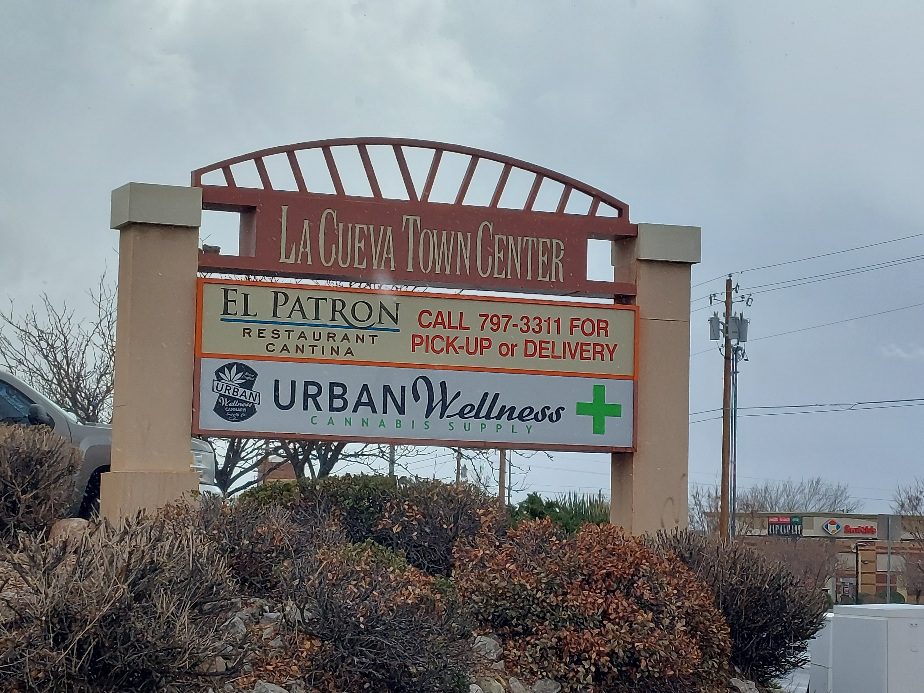It’s official. New Mexicans age 21 and older can now purchase marijuana for recreational use at any one of the 250 licensed retail locations across the state.
In Albuquerque, there are 69 cannabis retail locations approved for recreational sales by the New Mexico Regulation and Licensing Department, with a handful of those being in the far Northeast Heights.
David Muscarella, CEO of Urban Wellness and La Cueva High School alum, said that although there will be some significant changes from when pot was only available to medical marijuana card holders, those changes should not affect wait times, supply or costs for patients.
“We really value our patients,” Muscarella said, adding that increased staffing will help speed up wait times so patients can get their medicine quickly. Muscarella said Urban Wellness locations have also “staffed up” to help ease the burden on employees during the expected increase in demand for their products.
“We went from 50 employees to 150,” Muscarella said. Without the approval of recreational sales, Muscarella said they would have only added 50 new employees and will “increase staff as necessary.”
The number of locations has also grown. “A year ago today, Urban Wellness had three dispensaries and one grow location,” Muscarella said. Now they are about to open a sixth location in the North Valley and have two grow spots, helping to “quadruple production.”
One of Urban Wellness’ retail sales locations is at 7610 Carmel Ave. NE, across the street from the North Domingo Baca Skatepark and just down the road from La Cueva High School. When asked what Urban Wellness is doing to keep their products out of the hands of minors, Muscarella explained that the location has a security vestibule customers must enter before they are allowed on the sales floor. Upon entrance, customers show their ID in a waiting area before a separate door is unlocked to let them in to talk to one of the “bud tenders.” Muscarella said this prevents grab and run thefts while also ensuring customers are of legal age.
“It’s like liquor sales,” Muscarella said. “Once the alcohol leaves the liquor store, you just hope it doesn’t go to the wrong place.” He said the state has a lot of money to address drug enforcement and addiction issues and that in the future Urban Wellness hopes to team up with other organizations to do some type of outreach.
“Feel free to come get educated,” Muscarella said. “Come in and talk to one of our bud tenders. You don’t have to buy anything. Just come in and learn about cannabis and make the decision for yourself.” He said he wants first-time cannabis buyers to have a good experience and that having more employees and prepackaged products gives him more time to have a conversation with customers.
The New Mexico RLD requires marijuana products be prepackaged, whereas before recreational sales became legal, dispensaries had a “deli-style” system where patients could see the variety of medicinal buds in large jars or containers before making a purchase. Another major difference between medical and recreational sales is the amount of THC that is allowed for consumption in edible products. Medical card holders can purchase products with higher amounts of THC than recreational users. The other difference is the price.
Like other medicines, marijuana cannot be taxed for medical use. Recreational users, however, must pay close to a 20% tax when purchasing at retail locations. “That’s $20 on a $100 sale,” Muscarella said, explaining that the additional fee is a combination of a gross receipts tax and an excise tax. Muscarella said the GRT will most likely go up and can change every six months. The excise tax, he said, will increase after five years.
Despite the heavy tax, Muscarella thinks the price of marijuana will actually go down in New Mexico due to the increased supply growers produced in preparation for the higher demand. “We have been preparing for this for over a year,” Muscarella said.
One of the bigger problems for the industry is employee safety, as federal laws prevent dispensaries from using traditional banking methods, forcing them to carry large amounts of cash. “There are only a handful of banks in New Mexico that will accept our money,” Muscarella said. To alleviate the security problem this causes, many dispensaries us an ATM-like system that allows customers to pay with debit cards, but the companies operating these system charge exorbitant fees to both the customer and the seller.
Muscarella said Urban Wellness accepts payment through Hypur, a banking technology similar to Zelle that allows for electronic money transfers between individuals. Although Hypur does charge a fee, Muscarella said Urban Wellness covers the cost for customers. Muscarella is also considering accepting cryptocurrencies as a form of payment but is holding off for now.
Although all the kinks have yet to be worked out, Muscarella is optimistic that recreational sales will go smoothly. “I don’t know if there will be a line out the door at the Carmel location or the Academy location,” he said. “We will just have to see.”
To learn more about what Urban Wellness offers, visit urbanwellnessnm.com.


